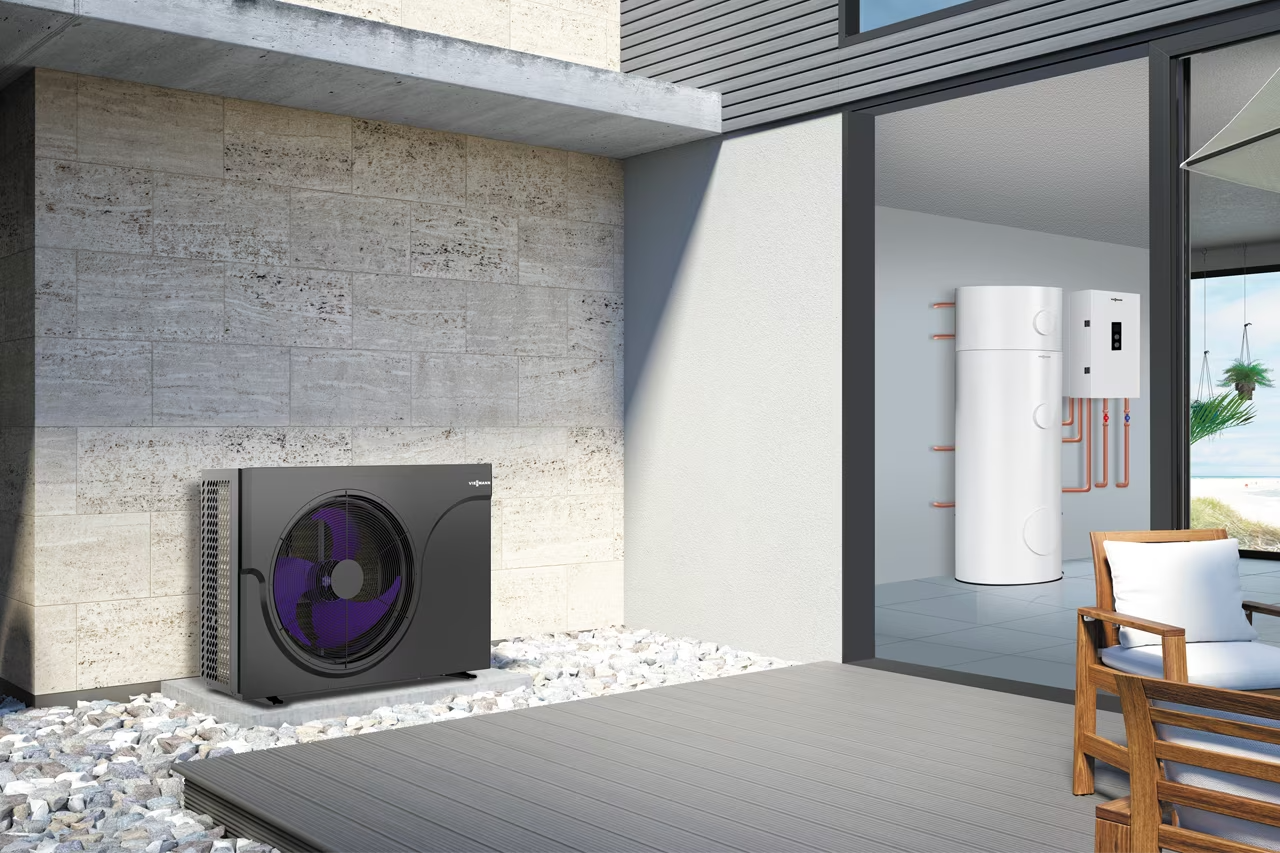
Heat pump water heaters are increasingly popular for their energy efficiency and environmentally friendly operation, making them an appealing choice for homeowners looking to reduce their carbon footprint. Unlike traditional water heaters, these systems use electricity to move heat from the air or ground to heat water, rather than generating heat directly. This unique approach significantly cuts down on energy consumption, making heat pump water heaters a smart investment for both cost savings and sustainability.
From cold winters to hot summers, the performance of these units can vary depending on the environment they operate in.
How Heat Pump Water Heaters Operate and Advantages
Heat pump water heaters work differently from conventional water heaters by transferring heat rather than generating it. They extract heat from the air or ground and use it to warm the water stored in the tank, functioning much like a reverse refrigerator.
This process is incredibly energy-efficient because it uses electricity primarily to move heat rather than produce it, resulting in significantly lower energy consumption.
Benefits
- Heat pump water heaters can be two to three times more efficient than conventional electric water heaters, leading to lower energy bills and reduced environmental impact.
- By utilizing renewable heat from the environment, these systems help decrease greenhouse gas emissions, supporting eco-friendly home initiatives.
- Although the initial investment might be higher, the long-term savings on energy bills make heat pump water heaters a cost-effective choice for many households.
- Many modern models are designed to perform efficiently in a range of temperatures, making them suitable for diverse climates when appropriately installed and maintained.
Performance in Different Climates
The effectiveness of heat pump water heaters can vary based on local climate conditions. Designed to be efficient across a range of temperatures, these systems can provide significant benefits when selected and maintained with the climate in mind.
Cold Climates
In cold climates like Toronto, heat pump water heaters face unique challenges as their efficiency depends on extracting heat from the surrounding air. During winter, lower ambient temperatures can make it harder for these systems to operate at peak performance, leading to longer heating times. However, several advanced features can help enhance their effectiveness in cold weather conditions.
However, features can enhance their effectiveness in colder weather:
-
Cold Climate Models
Some heat pump water heaters, such as the Viessmann Vitocal 100-AW, are specifically designed with enhanced insulation and advanced compressors to maintain performance even in lower temperatures. These models are built to withstand Toronto’s cold winters, ensuring reliable hot water year-round. -
Defrost Modes and Backup Heating
Many models designed for cold climates include defrost modes or backup electric resistance heating elements that activate during extreme cold, providing continuous hot water even when outdoor temperatures drop significantly.
Warm Climates
During Toronto’s warmer months, heat pump water heaters perform exceptionally well due to the ample ambient heat available. This natural heat source makes these systems highly efficient, minimizing the need for backup heating and maximizing energy savings.
Advantages in warmer climates:
- Higher Efficiency
The abundance of warm air provides an ideal environment for heat pumps, leading to faster heating and lower overall energy consumption. - Cooling Effect
In hot weather, heat pump water heaters can also provide a slight cooling effect to the surrounding area, particularly useful when installed in spaces like garages or utility rooms.
Choosing the Right Heat Pump Water Heater for Your Climate
Selecting the right heat pump water heater for your specific climate is essential to ensure optimal performance and energy efficiency. With a variety of models available, it's important to consider the unique features that will best suit your local weather conditions, whether you're dealing with harsh winters or hot, humid summers.
Key Features to Look For...
- Climate-Specific Design
Look for models specifically designed for your climate. Some heat pump water heaters come with enhanced insulation and adaptive controls that allow them to perform efficiently even in colder environments. - High Coefficient of Performance (COP)
The COP rating measures how efficiently a heat pump water heater uses energy. A higher COP indicates better performance, especially in diverse climates. This is an important factor if your area experiences fluctuating temperatures. - Backup Heating Elements
In colder regions, choosing a model with a built-in backup heating element or dual-mode operation can provide consistent hot water even during extremely low temperatures, ensuring comfort without sacrificing efficiency. - Noise Levels
Heat pump water heaters can generate some noise during operation. Choosing a model with quiet operation features, such as sound-dampening insulation, can be beneficial, especially if the unit is installed near living spaces.
The Viessmann Vitocal 100-AW is a standout choice for those seeking reliability across varying climates. This air-to-water heat pump model is engineered to perform efficiently in a wide range of temperatures, making it suitable for both cold and warm environments.
With advanced technology that optimizes energy use, the Vitocal 100-AW ensures steady hot water availability while keeping operational costs low.
When choosing a heat pump water heater, consider your climate, energy needs, and long-term maintenance requirements. Models like the Viessmann Vitocal 100-AW offer the flexibility and efficiency needed to provide reliable hot water in any weather.
- Designed to handle temperature extremes, this model adjusts its operation based on the current climate, maintaining efficiency whether it's a hot summer day or a frigid winter night.
- With a robust COP rating, the Vitocal 100-AW maximizes energy savings, helping homeowners reduce their carbon footprint and utility bills.
- Integrated smart technology allows for easy monitoring and adjustments, ensuring your system runs optimally based on real-time conditions.
Maintenance Tips
Regular maintenance is essential for keeping your heat pump water heater running efficiently throughout the year, regardless of the climate. Proper upkeep not only extends the lifespan of your unit but also ensures that it delivers consistent hot water with minimal energy consumption.
Neglecting maintenance can lead to reduced performance, increased energy costs, and unexpected breakdowns, especially during peak usage seasons.
- Clean or Replace Air Filters
Air filters can accumulate dust and debris, reducing airflow and system efficiency. Cleaning or replacing filters every few months ensures that the heat pump operates smoothly. - Inspect Evaporator Coils
Keeping the evaporator coils clean helps maintain the heat transfer efficiency. Dirty coils can lead to reduced heating performance, especially in humid or dusty environments. - Check for Leaks
Regularly inspect the unit and surrounding areas for any signs of water leakage, which could indicate issues with connections or pressure relief valves. - Schedule Professional Inspections
Annual inspections by a qualified technician can help identify potential issues early and keep the unit in top condition.
Many HVAC service providers, including HeatPumps.ca, offer maintenance packages tailored to heat pump water heaters. These packages typically include regular inspections, cleaning, and priority service, ensuring your system remains in optimal working order. Investing in a maintenance plan can save you time and money, reduce the risk of unexpected breakdowns, and keep your heater performing efficiently in all weather conditions.
Making the Right Choice for Year-Round Hot Water
Heat pump water heaters are a versatile and energy-efficient solution for homeowners looking to reduce their carbon footprint while maintaining reliable hot water. In colder climates, choosing a heat pump water heater with features like enhanced insulation and backup heating elements can ensure consistent performance. For warmer regions, these heaters thrive with the abundance of ambient heat, maximizing efficiency and lowering energy costs.
Choosing the right heat pump water heater and ensuring it’s properly installed is key to enjoying reliable, energy-efficient hot water in any climate.
For expert guidance and professional installation services, contact HeatPumps.ca. Our team is dedicated to helping you find the perfect solution for your home, backed by quality service and ongoing support.




